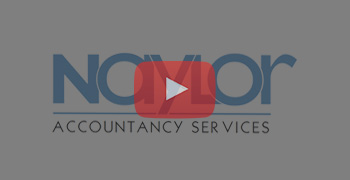Is the March 2016 budget good for small businesses?
Small businesses owners have a lot of new costs to their business with Auto Enrolment and changes in the tax on dividends. So does this March 2016 budget have any good news for small business owners? Yes, there does appear to be some cheer to provide a little glow in these last few weeks of cold before spring. There should be less tax take on small businesses and their owners with corporation tax set to lower, personal tax free allowance increasing, NI class 2 being abolished and business rates threshold increasing as well as a cut to the capital gains tax rate. ## Here are the highlights: * Corporation tax to fall to 17% by 2020 * Personal tax-free allowance to increase to £11,500 from April 2017 (it will be £11,00 by April 2016) * National Insurance class 2 to be abolished for the self-employed by April 2018 * Business rates will not need to be paid on rateable values up to £12,000 which is an increase in the annual threshold for 100% business rate relief from £6,000 and the higher rate threshold will increase from £18,000 to £51,000 as of April 2017 * Capital Gains Tax will be cut from 28% to 20% for the main rate and the basic rate from 18% to 10% from April 2016. This is to try and boost investment in businesses * VAT registration threshold to increase to £83,000 from April 2016 All these new rates have all been updated in the FREE Naylor Accountancy App available for smartphones at the Apple and Android app store. They are found in “tax tables” and you can see the tax rates for the various year’s side by side. Other changes in the budget that could be of interest are: * ISA allowance is increasing to £20,000 per year from April 2017 (up from £15,240). * A new Lifetime ISA which will allow savers under the age of 40 to save up to £4,000 per year. The Government will add a 25% bonus to the money saved which has to be used to purchase a new home * New tax-free allowances where it will be possible to earn up to £1,000 per year from ‘occasional jobs’ without paying any tax. This includes income from selling goods you have made, providing services or relating to income from property you own (such as renting a driveway). * National Minimum Wage hourly rates will increase from October 2016 to £6.95 per hour for 21 to 24-year olds; to £5.55 per hour for 18 to 20-year olds; to £4.00 per hour for 16 and 17-year olds and to £3.40 per hour for apprentices. * New sugar tax will be introduced in two years with one band affecting products containing more than 5g of sugar per 100ml and a second higher band will target those with more than 8g. Pure fruit juices and milk-based drinks will be excluded and the smallest producers are to be shielded from the measures. * Stamp Duty for commercial properties will see new bands being introduced with immediate effect. The commercial property stamp duty regime will be aligned with residential property stamp duty, which is paid on the proportion of the property’s value falling within each band. The portion of a property’s price up to £150,000 will attract a 0% charge, the portion of its price between £150,001 and £250,000 will attract a 2% charge and amounts over £250,000 will attract a 5% charge. * Insurance Premium Tax to increase by 0.5% from 1 October 2016.







